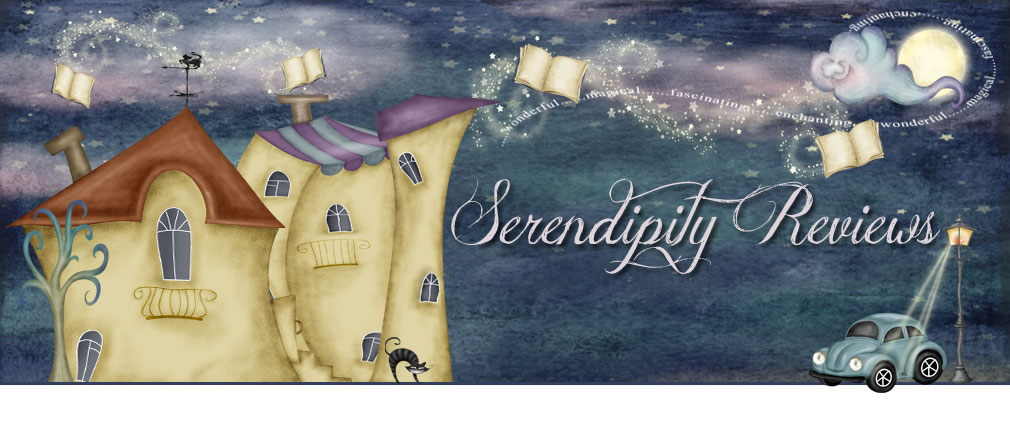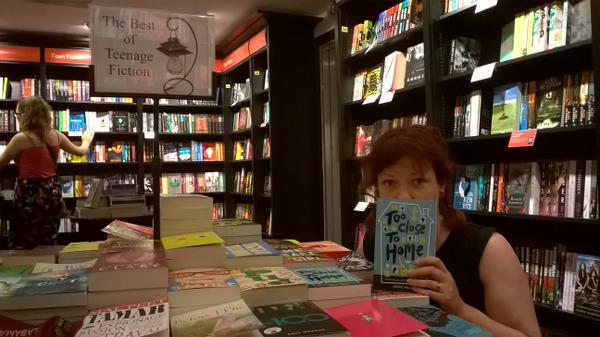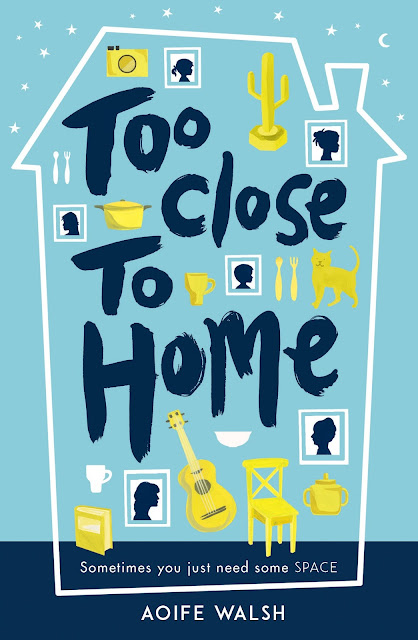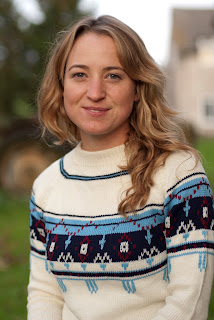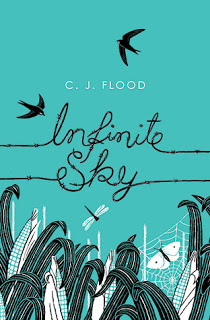Monday, 13 July 2015
Inspire Me with Aoife Walsh
Friday, 26 September 2014
The Write Way with Holly Webb
Friday, 15 February 2013
The Big Break with C.J Flood
Thank you for having me! I’m very happy to be here.
Did you always want to be a writer?
I think I did, though not in a serious way. When I was a kid, I used to write lots of stories, and I always loved English at school. I didn’t consider it as a proper career path until after university, when I realised that there really wasn’t much else I was good at, or fancied doing, and so I began to put all of my efforts into getting better at writing.
How long did it take you to write your debut novel ‘Infinite Sky’?
It took about three years. I started the book about six months before I began an MA at the University of East Anglia, worked on it intensively throughout the course, and finished it about a year and a half after graduating.
Tell us about your inspiration for writing ‘Infinite Sky’?
The main inspiration for the book was the farm that I spent half my childhood at, my dad’s house, which Silverweed Farm is based on. I also drew a lot from my teenage memories, from friendships I had then, and my relationship with my older brother.
What was your first reaction when you found out that your book was to be published?
It was a very strange feeling. Almost too surreal to grasp. It had been a dream of mine for so long, that when it happened it was almost unsettling. I felt, for the first time in my life, that perhaps anything (within reason) was possible, and that made me feel a bit nervous and weird. Of course, I should have just been excited, I realise that.
How long did it take for your book to reach publication after the initial agreement?
We sold the book in September 2011, and Infinite Sky publishes February 2013, so a year and a halfish.
What was happening to your manuscript during this time?
It was going through edits, which were fairly light, though still took a long time because I had a lot of ideas about things I wanted to change. It was a fairly delightful process actually, as my editor and I agreed pretty much unanimously on everything. Then there were copy edits and proofreading.
How did you keep yourself occupied as you waited for publication day?
I played an extraordinary amount of table tennis and became addicted to Twitter.
I absolutely DID NOT google myself or obsessively scour the Internet and GoodReads for advance reviews. The reasons I didn’t do that are multiple: I have more dignity than that; I don’t have the time to waste on such pursuits; I am not that self-obsessed; and I
realise that no matter how many people love or hate the book it will always only be as good or as bad as it ever was.
How will you celebrate on publication day?
I am going out for lunch with two of my dear friends and their tiny baby, and for tea with another much loved friend. I am also going to go to Waterstones and Foyles and sniff the hell out of any copies of Infinite Sky that I find there.
‘Infinite Sky’ is already receiving excellent reviews, how does that make you feel?
It makes me feel very marvellous. I am so happy when I hear that people are enjoying it. I’ve had a few emails from readers, and a handwritten letter too, and really these people just make my day. Always write to authors when you loved their book.
Can you tell us anything about the next book you have planned?
Yes! My second novel is a story about a teenage girl’s search for her missing brother. He’s a soldier, due back from his first tour in Afghanistan, only he hasn’t come home. When his little sister hears that he has been spotted in the woods where they used to play as kids, she sets out with her friends to try and find him, and bring him home. But, of course, it isn’t that easy. It’s about friendship and adventure and bravery, and I think that readers who liked Infinite Sky, will enjoy it.
Do you write full time now?
I do.
Tell us what a typical writing day would be like?
My writing days change depending at what point I am with a novel. When I’m thinking of ideas, I don’t necessarily need to be clocking in at my desk so routinely. I still have done in the past, but I’m thinking on book three, I will try to change this. It’s often just a waste of time, and I write loads of words that just get thrown away in this period. I think I’d be better off being out in the world or reading, trying to get inspired.
In the main writing days, I get to my desk at ten, and write until about two, and then do all the admin/social media stuff until about six. But as deadline approaches I’m at my desk, or more likely typing in bed, until much, much later than that.
In the editing days, I work for hours and hours at a time, day and night, reading and re-reading my manuscript until I feel quite mad, and can’t believe that anyone could ever find anything to enjoy in it.
And at all stages, I think about the book even when I’m not at my desk. I’ll steal a mannerism from a friend, or an annoying trait from myself that. I might see a red leaf spinning at the centre of a cobweb or white petals floating over the top of a flooded drain, and write them down for my character to notice later.
What advice would you give to aspiring and unpublished authors?
Read and write a lot. Keep a diary of your experiences, but write them as fiction. This is the main way I learned to write. Be yourself. Don’t adopt a ‘writerly voice’ because anyone can do that, while only you can write as you. Sounds cheesy, but it’s true! Write as you would speak, or as you have heard other people speak if your narrator is nothing like you. Be prepared for it not to happen really quickly, and to be rejected a lot. Don’t give up. Unless it is making you more miserable than you think giving up would make you.
Infinite Sky by C.J. Flood is published today! 14th of February! It is published by Simon and Schuster and available on Amazon for £6.89!
To find out more about C.J. Flood:
Blog
Monday, 22 October 2012
The Light Behind the Window by Lucinda Riley
Wednesday, 10 February 2010
The Earth Hums In B Flat by Mari Strachan
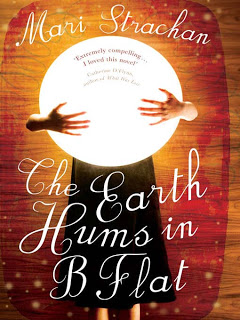
Pages 327
Published in 2009 by Canongate
Challenge - What's In a Name challenge and Young Adult Challenge.
I fly in my sleep every night. When I was little I could fly without being asleep; now I can't, even though I practise and practise. And after what I saw last night I want more than ever to fly wide- awake. Mam always says: I want never gets. Is that true?
This is the story of young Gwenni Morgan who believes she has the gift of flight. The book looks at the world from her perspective throughout. She is very intelligent, but most people thinks she little odd. She loves detective stories and is always curious as the world around her. When a neighbour disappears, Gwenni takes on the role of detective in order to help solve his disappearance. As she pursues the truth, upsetting people with her questions, she brings to light a lot of dark family truths that perhaps should have stayed buried.
This is a delightful story showing the world through a child's eyes on the brink of coming of age. Gwenni is a lovely character who has to cope with a mother who is on the verge on a nervous breakdown. She has to learn a lot of home truths fast which really change the world she lives in.
The book is set in the 1950's in a little Welsh town on the brink of change. The families still cook on fire rather than a normal oven, no central heating or indoor bathrooms have reached the town yet. There is a reluctant air within the town to move into the modern age. The community they live in, is very close knit and everyone knows everyone else's business. All except Gwenni and her sister, who have to face a lot of hidden truths as the book progresses.
Secret by secret they all crawl out of the woodwork, sending Gwenni's mother completely over the top. She is a woman, who has always tried to keep a lid on her secrets, but her pot has just boiled over.
I did enjoy this book and it reminded me a little of my childhood; not the setting, as I can assure I wasn't around in the 50's, but instead the way family secrets come out by accident and you end up finding out things you are really not supposed to know. Every family has it's own dirty laundry that somehow gets exposed at times.
For a debut novel, I thought it was very well written, I fell in love with Gwenni right from the start and I wanted to cocoon her from her mother's wrath. She is full of spirit and insight into the world around you. She won't take no for an answer and pursues the truth, without fear.
The only part I didn't quite get, was the business of Gwenni flying. I never really understood whether or not she could actually fly, or was it all in her day dreaming. I never really saw the purpose of it either, within the book. I wonder if it was just added to give Gwenni' a bit of quirkiness.
This is definitely a charming book about coming of age and family life and definitely worth a read. There is definitely a little magic hidden within the pages of the book that needs to be let out to sparkle in it's own right.

Monday, 7 December 2009
Are You Feeling Festive?
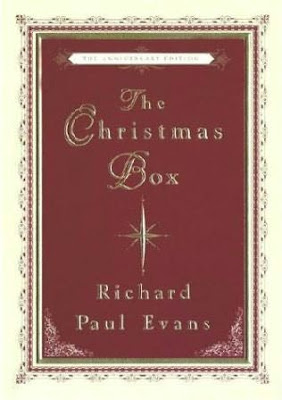

Thursday, 26 November 2009
Dress Circle by Laurie Graham
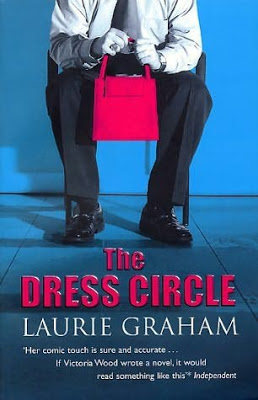
Pages 218
Published by Black Swan in 1998
I was lucky enough to be lent this book by my friend Fiona. She had loved it and thought I would enjoy it. I love to read books that have been recommended by others and this one was no exception.
Bob and Barbara are the main characters of the book. They are a couple in their mature years and enjoying the rewards of their business. They are surrounded by a loving family, grandchildren and friends. Everything seems positively rosy as they prepare for their daughter's wedding.
However Bob is not as settled as Barbara thought he was and Barbara starts to worry what he is keeping from her. What is his secret?
Spoiler Alert Spoiler Alert.
Bob has a big secret, he likes to dress in women's clothing. He has lived with this secret all his life and he can no longer live a lie. He wants to be able to wear women's clothes out in public. All hell breaks lose within the family. Barbara struggles to cope with living with Bob dressed as a woman. His children freeze him out and his friends are not sure what which to turn.
This book deals with some life changing events, yet all the characters work hard to pull through these situations and they definitely see the brighter side of life. In fact, whilst reading I felt myself humming, Monty Python's ' Always Look On The Bright Side Of Life'. This book makes you realise that you can overcome the worst things that happen in life and eventually you will move on.
Bob's cross dressing is dealt with very well, the mixed reactions from his family are completely believable. Bob's son actually punches his dad and accuses him of being a paedophile. I would imagine that this could be a common misconception for cross dressers and I find that really sad. Unfortunately society in general, finds this a difficult choice to understand and it is seen as being socially unacceptable. Bob takes the criticism well as he just wants to live his life without lies. You can only hope that eventually his son overcomes his animosity.
I loved this book. It was sad, yet so funny as well . The characters were full of hilarious eccentricities. I felt like I knew them all. They came across as characters from a very English show I used to love to watch called 'Keeping Up Appearances', which had a comical character called Hyacinth Bouquet in. The characters in the book have typically Essex traits and being a former Essex girl, I felt like I had stepped back in time to my Essex roots. I grew up surrounded by families like this, where everyone had to have the latest technology, the latest designer clothes and so forth.
This book is British humour at its best. If you enjoy watching typical British comedies such as Only Fools and Horses and The Office, you will love this. I read it in one sitting as I just couldn't put it down. I would advise that you don't read it in public places, as you end up looking really daft when you either get a fit of the giggles or tears of sadness.

Thursday, 17 September 2009
The Girl Who Stopped Swimming by Joshlyn Jackson
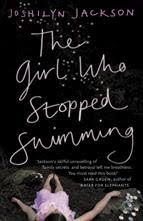
Pages 311
Published by Hodder and Stoughton in 2008
Challenges - RIP, Reliquiae and 100 books
First paragraph
Until the drowned girl came to Laurel's bedroom, ghosts had never walked in Victorianna. The houses were only twenty years old, with no accumulated history to put creaks in the hardwood floors or rattle at the pipes. The backyards had tall fences, and there were no cracks in the white sidewalks. Victorianna had a heavy wrought-iron gate guarding its entrance.
Don't you just love a good ghost story? I do and this wasn't it. It was good book, a real thriller and it had ghosts in it, but the ghosts in this book were purely there to help the main character Laurel make decisions in her life, similar to personal visions.
Here is a bit about the story, before I start waffling.
Laurel Hawthorne is woken up in the middle of the night by a ghost of a young girl staring at her in her bedroom. Laurel follows the ghost to the window and then notices the body of 14 year Molly floating dead in her swimming pool.
Every one in the gated community of Victorianna is convinced that it is an accident, even the police have decided it is an accident too. Yet Laurel feels that their is something more sinister going on. Everything around Laurel starts to fall apart and she calls upon the help of her rather destructive sister Thalia to help her discover what really happened to Molly.
They embark on a journey to solve the death of Molly, along the way Laurel also discovers some home truths about her family and finally what did happen in the woods all those years ago.
This was a fabulous plot. I honestly thought it was very well crafted. As you read the book, you watch as the story slowly unfolds, just like an oragami folded flower, where each time you unfold a piece the whole thing looks different to before.
Laurel starts off as quite a weak character, she has spent years learning to live within her comfort zone and learning to wear blinkers to certain aspects of her life. By the end of the book, Laurel has learnt to kick ass! She stands up to the members of her family who have kept her under their thumbs for years. Laurel comes to realise that she is happy with her lot and no amount of meddling by her sister will change the fact.
Thalia is the sister, you would rather not have. Thalia comes to her sister's rescue with one intent close to her heart, to destroy her sister's marriage, which she believes is not the life her sister really wants. Personally, I think marriage is hard enough, without having a member of your close knit family poking sticks into your relationship, till all the marbles fall out like in Ker Plunk! and you are left with an empty shell of a marriage. By the end of the book, the relationship between Thalia and Laurel is repaired and they bounce back stronger as if they had been bonded by Superglue. I don't think I would forgive my sister so easily, but hey I am British.
There are some stir crazy minor characters whose unusual activities tend to make you raise your eyebrows.
I was trying to think about another book I felt this one reminded me of and then it came to me. Years ago I read Paullina Simons book Tully and I found a lot of similarities to this one and her other book Red Leaves. Now I really love Paullina Simons, when I first read her books I found her style of writing refreshing and unique, so finding a comparison to her is definitely a winning new author to me.
This book was much more of a thriller than a ghost story and a very dark one at that. It touches on taboo areas such as child abuse, alcoholism and prostitution, but in a light hearted way, so you don't feel uncomfortable reading about them.
I would highly recommend reading it. I also have her first book in my collection, Gods In Alabama to read, so I can't wait to dive into that one too.
Other reviews of this book
Everything Distills Into Reading
Bookfan Mary
Peeking Between The Pages

Further reading
- Non Gamstop Casinos
- UK Non Gamstop Casinos
- Casino Sites Not On Gamstop
- UK Betting Apps
- Casino Sites Not On Gamstop
- UK Online Casinos Not On Gamstop
- Sites Not On Gamstop
- Slots Not On Gamstop
- Casinos Not On Gamstop
- Non Gamstop Casinos Uk
- Casinos Not On Gamstop
- Casino Sites Not On Gamstop
- Non Gamstop Casinos
- Sites Not On Gamstop
- Casinos Not On Gamstop
- Casino Not On Gamstop
- Non Gamstop Casinos UK
- UK Casino Not On Gamstop
- Non Gamstop Casinos
- UK Betting Sites List
- Betting Sites Not On Gamstop
- UK Casino Not On Gamstop
- Non Gamstop Casino UK
